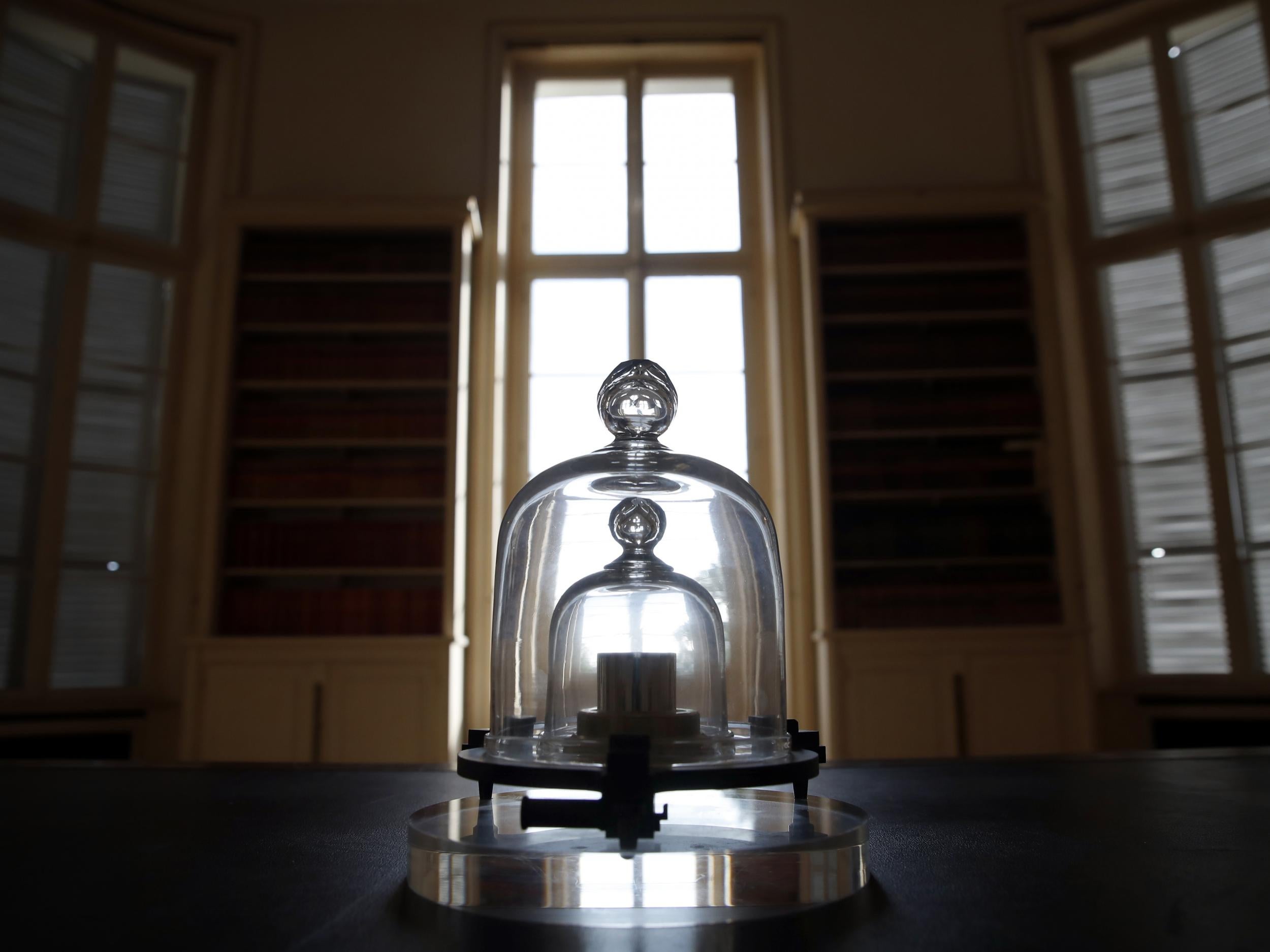Scientists vote to change definition of kilogram
'The vote is a unanimous yes; I hope that such votes will be possible for many other issues in the world'
Scientists have unanimously voted to change the way a kilogram is defined.
A cylinder of polished platinum-iridium alloy known as “Le Grand K”, which is locked away safe in a Paris vault, it to be retired from its role as the true kilogram.
Instead, attendees at the General Conference on Weights and Measures have opted to use a measurement based on electric currents to define this unit of weight.
Representatives from 60 countries around the world gathered in Versailles, France, to witness the moment, with some scientists sporting tattoos on their arms to mark the occasion.
The decision was greeted by rapturous applause, after the policy makers and scientists one by one signalled their approval of the new system.
“The vote is a unanimous yes; I hope that such votes will be possible for many other issues in the world,” said Professor Sebastien Candel, president of the French Academy of Sciences, who oversaw proceedings.

Besides the kilogram, the vote also covered three other measures from the International System of Units (SI): the ampere, the kelvin and the mole.
The changes will not be felt in people’s everyday lives, but the moment has been viewed as a revolution in the field of weights and measures.
“The SI redefinition is a landmark moment in scientific measurement,” said Dr Jan-Theodoor Janssen, director of research at the UK’s National Physical Laboratory.
“This will pave the way for far more accurate measurements and lays a more stable foundation for science.”
It means that from May 2019, all the units on which all other measurements are based – also including the metre, second and candela – will be based on constants of nature.
Other SI units have been based on these constants for some time. The metre, for example, has been defined since 1983 as the length of the path travelled by a beam of light in a vacuum within a specific time interval.
Le Grand K and its six official copies have been essential to the international system of defining weights since 1889.
The use of Planck’s constant, a value that relates weight to electrical current, will offer advantages over the more archaic method currently used.

Unlike the metal lumps that currently form the basis for things being weighed across the planet, this constant will not gradually decay or pick up spots of dust, and neither is there any risk of it being dropped on the ground.
The new system will also be better for measuring the very smallest and largest masses.
Since it was placed in a vault over a century ago, Le Grand K has only been taken out very occasionally to ensure that the master kilograms used in other countries were still accurately calibrated.
Now nations will no longer have to send their kilograms back to France to ensure their measurements are still correct.
Join our commenting forum
Join thought-provoking conversations, follow other Independent readers and see their replies
Comments
Bookmark popover
Removed from bookmarks